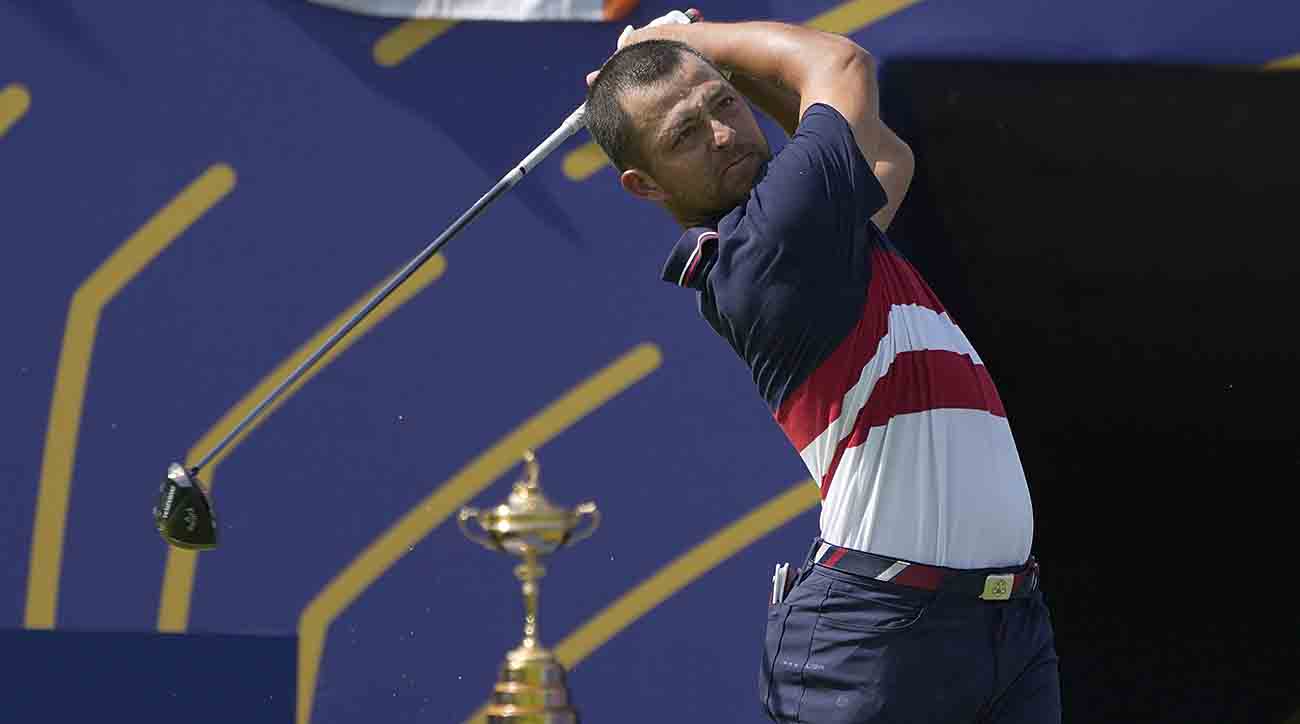The Ryder Cup Is Over, But Issues of Pay-for-Play and Netflix Linger With the Schauffele Family in the Middle

All you could hear was the sound of the plane engine high over the first tee at Marco Simone.
After Europe’s Jon Rahm hit his tee shot to kick off the Sunday singles against Scottie Scheffler, the screams and yells from the largely partisan crowd rang out as the two walked off the tee between throngs of fans that lined the fairway on both sides.
The Ryder Cup, which started as an exhibition in 1927, has grown into a competition and one of the larger spectator events in the world.
After each edition the postmortem begins, but the review of the 44th Ryder Cup may be more interesting than the details of 16½ to 11½ drubbing outside Rome last week, since the issue of money has surfaced again. Some on the U.S. side want better transparency about how much is generated, where it goes and why more of it isn't coming their way.

It's been 24 years since the idea of paying players who participate in Ryder Cups became a talking point.
Then it was Mark O’Meara, David Duval and Tiger Woods not asking, but rather telling the PGA of America they wanted to be fairly compensated for their efforts.
Ultimately, cooler heads prevailed, the U.S. came back from a four-point deficit on Sunday at The Country Club and won what is still considered one of the greatest Ryder Cups in history.
Out of that Ryder Cup, payments to players' charities and foundations followed soon after, and for a while the matter was closed.
The amount of the payments has grown over time and was at $200,000 per player and captain for the losing American side in Rome. But some players wonder why the money can't be paid directly to them, with the players themselves to then determine where it goes.
This is distinctly a U.S. team issue; European players are not compensated in any way according to the European Tour, instead the Tour contributes a seven-figure donation to the Ryder Cup European Development Trust to support golf development in European nations.
“We are going to inject it certainly seven figures-plus after this event, as a lump sum to get some things going,” Guy Kinnings, deputy CEO, Ryder Cup director and chief commercial officer at the European Tour Group and Ryder Cup Europe, told Sports Illustrated on Sunday at Marco Simone. ”And we were given, again, an annual amount guarantee.”
European players, like U.S. players, have provisions in some of their sponsorship contracts for Ryder Cup bonuses, but they are not receiving any bonuses from the European Tour.
Both the PGA of America and the European Tour run on a four-year business cycle, and the European Tour's cycle ends this year after this Ryder Cup.
Its previous cycle from 2015-18 included the Ryder Cup in France and $115 million was generated over that cycle, with the Ryder Cup responsible for more than $80 million in gross revenue. An undisclosed net amount went to purses on the European Tour and donations to the Ryder Cup European Development Trust.
The current cycle of 2019-23, an unusual five-year cycle due to the COVID-19 pandemic, will generate around $170 million. The gross revenue from the Ryder Cup will be around $120 million.
The growth over five years has come from the increase of worldwide partners from only one in Paris to seven in Rome, plus 38 commercial partners, with consumer participation up 34%.
“And we needed every euro, dollar and pound because of the cost of working in Italy, supply chain, the impact of war in Europe and COVID has been astronomical, so we've needed them,” Kinnings said. “If you're going to deliver something on this scale, to elevate the event, you need to bring in those revenues to counter what are the spiraling costs of doing it."
The European Tour’s operations are relatively easy to understand: bring the money in from the home Ryder Cups and use it for operations over the four-year cycle.
For the PGA of America, the process is a little more daunting as both the players and the PGA Tour have their hands out.
The PGA Tour receives 20% of the Ryder Cup contract from the PGA of America in exchange for the media rights of the players.
From the current 15-year, $440 million television deal with NBC, expiring in 2030 and covering eight Ryder Cups, the PGA of America receives $55 million per edition.
And the PGA Tour receives $11 million.
It’s unclear where the $11 million goes when it reaches the Tour—Tour officials have never specified—but PGA of America officials hope it goes directly to the Tour's pension fund. Others would like to see a portion go to the players themselves.
One of those wishing for compensation for the 12 U.S. players is Stefan Schauffele, father, and coach of Xander Schauffele.
The older Schauffele has talked about numerous ways of getting compensation for the players, but ultimately the decision resides with the PGA Tour.
“Transparency,” Schauffele says is what is required.
Some believed that Patrick Cantlay not wearing a hat was a silent protest for compensation, but Cantlay said on Saturday's broadcast that his hats didn't fit and going hatless was nothing more than that.
A story Monday from The Times of London suggested that the PGA of America was seriously considering dropping Schauffele from the team because he would not sign a player participation and benefit agreement.
The older Schauffele confirmed the story to Sports Illustrated, but seemingly never believed matters would come to his son's non-participation. In fact when PGA CEO Seth Waugh heard about the rift, the issues were cleared up quickly by the Sunday of Labor Day weekend, almost a month before the Ryder Cup.
One of the issues for Schauffele was Netflix access to the team room at the Ryder Cup.
Like many players, Schauffele signed a release to participate in the series Full Swing, but two issues occurred in 2022 that caused the younger Schauffele to withdraw his consent from Netflix.
First, there was the recording of a discussion of what was clearly a private conversation between the older Schauffele and another individual where Netflix was at the ready with a boom mic.
The second came when the younger Schauffele was receiving physical therapy at a tournament, and a cameraman came in and recorded the session.
Because of the sanctity of the team room and his experience with Netflix, Schauffele asked that Full Swing cameras not be permitted in the room. U.S. captain Zach Johnson then polled his players and they unanimously agreed to bar them.
Oddly, Netflix is not paying any fees to players, the PGA Tour, PGA of America or the Ryder Cup, with all those concerned believing that the exposure will more than compensate them in the future.
Outside of the Netflix issue, there were two other issues the older Schauffele wanted addressed in the player participation agreement with the PGA of America: waiving player liability and providing a release in perpetuity of the players rights' from images at the Ryder Cup in Rome.
As all three were addressed, any potential banning of Schauffele was no longer necessary.
Schauffele did not bring up player compensation but says it's on his agenda for the future, going back to his desire for transparency and hoping to get a clearer picture of where Ryder Cup money is going.
Clearly, receiving a percentage of the Tour’s 20% would end much of the money discussion, but that seems unlikely to occur in the short term since the Tour’s interest in the Ryder Cup would be transferred into a new for-profit corporation if an agreement with the Public Investment Fund of Saudi Arabia is consummated.
Then the players and Schauffele will have another entity to deal with.
